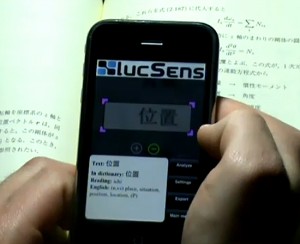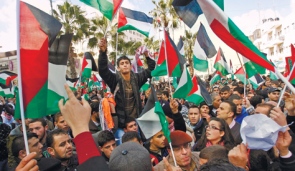
Laura Rozen, Politico, 21 February 2011
As several Libyan diplomats Monday denounced their country’s four-decade ruler Col. Muammar Qadhafi for unleashing the army against anti-government protesters, U.S. consultancies that have worked to burnish Libya’s and Qadhafi’s U.S. image were laying low.
Several consulting, law and lobbying firms have moved in to advise the Libyan government and energy interests since U.S. sanctions were lifted on Libya in 2004, some of which have since canceled their contracts, according to Justice Department records.
Fahmy Hudome International canceled its contract with the Libyan government in 2007. The Livingston Group canceled its $360,000-per-year lobbying contract with the Libyan government as well as one with an associated Qadhafi charity in September 2009, following the hero’s welcome Libyan leaders gave for the convicted Lockerbie bomber upon his release in August 2009 from a Scottish prison on humanitarian grounds. Justice Department records indicate the law firm White & Case LLP has been registered since 2008 to represent Libya regarding a litigation matter.
One of the more unlikely figures to have advised a firm which has worked to burnish Libya's image and grow its economy is not registered with the Justice Department. Prominent neoconservative Richard Perle, the former Reagan-era Defense Department official and George W. Bush-era chairman of the Defense Policy Board, traveled to Libya twice in 2006 to meet with Qadhafi, and afterward briefed Vice President Dick Cheney on his visits, according to documents released by a Libyan opposition group in 2009.
Perle traveled to Libya as a paid adviser to the Monitor Group, a prestigious Boston-based consulting firm with close ties to leading professors at the Harvard Business School. The firm named Perle a senior adviser in 2006.
The Monitor Group described Perle’s travel to Libya and the recruitment of several other prominent thinkers and former officials to burnish Libya’s and Qadhafi’s image in a series of documents obtained and released by a Libyan opposition group, the National Conference of the Libyan Opposition, in 2009.
Phi Beta Iota: In fairness to the Neocons, there is no real difference between the two parties that vie for control of the public purse to favor private ends. US Government support for dictators, criminal gangs, and selected terrorist groups has always been “bi-partisan” and completely devoid of any public benefit.
See Also:
Continue reading “How Neocon Central Worked for Muammar Qadhafi”





